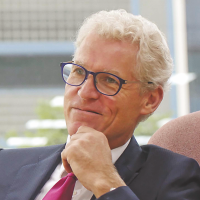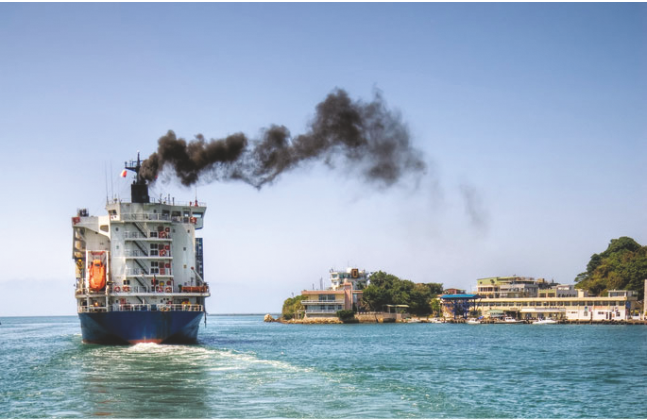Industry leaders deliberate on global warming and its impact on shipping industry, approaching IMO 2020 Sulphur fuel cap and the high cost of compliance, Asian economies reshaping the world trade and growing trade on the Far East – ASEAN route

Impact of global warming is becoming more obvious on the shipping sector, global terminals are struggling to catch up with growing size of container vessels and misbalance in movement of boxes due to US-China trade war, were some of the key points Jeremy Nixon, CEO, Ocean Network Express (ONE) touched upon during his keynote address at the TOC Asia Container Supply Chain Conference. Global warming has led to more cyclones and typhoons rumbling through key shipping lanes, disrupting shipping and terminal operations. On the markets, Nixon admitted that there was an economic slowdown, but he was adamant it was not a slump. He predicted supply/demand to tighten in 2019.
Nixon was confident of a close soon to the US-China trade war, noting how the spat had exacerbated the equipment imbalance on the transpacific where one in two boxes leaving the US back to Asia is now empty. Another growing supply chain headache for liners, Nixon said, are with terminals across the world that have struggled to keep up with the supersizing of box ships. “The speed at which they’re adding terminal capacity globally is not keeping up, especially in Europe, America and even in Asia,” Nixon said.

Alan Murphy, Chief Executive, Sea-Intelligence Consulting, pointed at falling carrier schedule reliability that fell to record-low levels in 2018 – the worst in seven years since the analyst began recording reliability data. “Service levels have been very bad, especially on the transpacific trade where two out of three vessels arriving are more than a day late,” Murphy said. Comparing the reliability between the three major carrier alliances, he said in the past THE Alliance had struggled, but that now we’re seeing a close in that gap because unfortunately the other alliances are going down, rather than THE Alliance going up.”

“Doomsday predictions surrounding the IMO 2020 sulphur fuel cap and the impact on container lines are unfounded,” according to Tan Hua Joo, Chief Analyst, Alphaliner. But there’s been some pretty catastrophic predictions being made, and while there’s a lot of uncertainty on IMO 2020, I don’t think these dire predictions are entirely justified, he said. Estimates of the new regulation costing up to $50 billion were overblown, and instead placed the cost at around $10 billion on an annualised basis, adding that this would be the “top end and the likely cost will be much lower.”
Furthermore, Tan said, carriers have shown resilience in the past in overcoming some major challenges wrought by new regulations. The build up to the Sulphur Emission Control Areas in 2015 and the VGM in 2016, for example, both entailed similar confusion and apparent lack of preparedness – but nonetheless both events passed with almost zero market disruption and high compliance, he said. “Having said that, a $10 billion bill is still an extremely large one for the industry to bare, and it’s suddenly the costliest IMO rule that’s ever been attempted,” he added.
As the ASEAN “tiger economies” continue to reshape the world’s largest container trade, some domestic shippers are questioning the industry’s march towards ultra-large container vessels, noted Han Ning, Director, Drewry. With 31m teu and 100 port pairs, intra-Asia accounts for roughly one-in-four boxes shipped worldwide every year. The rise of the “ASEAN tiger” economies is deepening the region’s trade ties, particularly between South-east Asia and the Far East’s “older tigers” of China and Korea, said Han Ning.
“Logistics providers in Asia will experience a very lucky period compared with the long-haul trades. Long-haul routes from ASEAN stayed stable, other routes are losing market share and the only trade with remarkable growth is Far East– ASEAN,” she noted.







